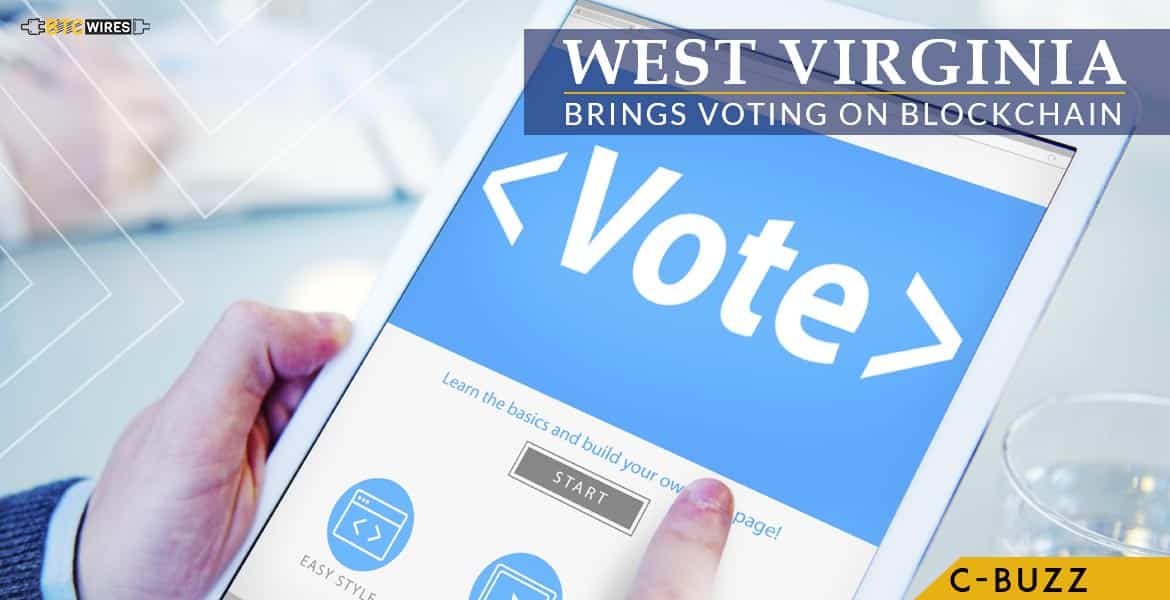BTC Wires: The government officials of West Virginia have decided to

BTC Wires: The government officials of West Virginia have decided to incorporate blockchain tech in their midterm elections.
The blockchain – based voting app will be directed particularly at the absentee voters in the military in all of the 55 counties in the state. Development of the said app was in pilot stages in the month of May when it was first reported. This mobile app will enable the military personnel and their relatives to cast ballots from the counties of Harrison and Monongalia.
The move is a surprise as it comes at a time when the United States is still dealing with the Russian Interference in Presidential elections. Nevertheless, secretary of state of West Virginia Mac Warner and Voatz, the tech company that came up with the app assert that the it is secure. Warner affirmed that the use of the app will remain exclusive only to the military personnel and was quoted as saying,
“There is nobody that deserves the right to vote any more than the guys that are out there, and the women that are out there, putting their lives on the line for us.”
The app is secured by the face recognition feature that makes it mandatory for anyone who wishes to vote to upload their government verified identification along with a selfie video. The facial recognition tool will ensure that the persons in the video and the ID are the same and will let them cast their ballots. The votes will be recorded on the digital ledger, blockchain.
Voatz, is a technology developer firm based out of Boston that is trying its hand at mobile balloting and recording votes using DLT.
Not all are positive about this initiative as Joseph Hall, the chief technologist at the Center of Technology and Democracy spoke of mobile voting as a terrible idea. He said,
“It’s internet voting on people’s horribly secured devices, over our horrible networks, to servers that are very difficult to secure without a physical paper record of the vote.”
Marian K. Schneider, president of Verified Voting simply shunned the the proposal of voting through a mobile app. She raised her concerns about the “attack area being much broader” and more vulnerable to hacking and meddling.
Come November and the debate whether blockchain voting is a good idea or not will be put to an end. The midterm elections will definitely be keenly observed by both; the ones in support and the ones in doubt.

